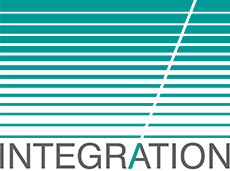Project Background
As the second largest donor of funds from international cooperation in Colombia, the European Union (EU) has supported the Government development plans for the consolidation of peace since their beginning. Through the Indicative Multiannual Programme (MIP) 2014-2017, with an allocation of EUR 67 million, the EU aligns its cooperation commitments to the strategies set in the National Development Plan in two main sectors:
(i) Local development and institutional strengthening: Sector Reform Contract to promote the sustainable local development and livelihoods of the population living in socially and environmentally sensitive areas through the sustainable management of biodiversity and natural resources. The programme will support the Green Growth in these specific areas.
(ii) Sustainable trade and investment: Sector Reform Contract for Strategic Territorial Competitiveness in Colombia. The Sector Strategic Plan of the Ministry of Trade, Industry and Tourism (MINCIT) defines three main pillars: 1) To increase exports for non-mining energy resources; 2) To increase productivity by 15% and business growth; and 3) To attract tourism leading to the generation of currency and employment; and two cross-cutting pillars for institutional strengthening and results-oriented management and budgeting.
The main implementation modality for the MIP 2014-2017 is the Sector Reform Contract. From the total MIP budget of EUR 67 million, EUR 52.6 million (78.5%) are for Sector Reform Contracts, of which EUR 43 million (82%) are for Sector Budget Support and EUR 9.6 million (18%) for complementary support. The Sector Budget Support modality requires, besides other conditions, the existence of quality institutional capacities within the beneficiary governmental offices. Moreover, in light of a post-conflict scenario, the capacity building and development is the biggest challenge for the strengthening of public institutions and the fiscal capacity at all levels (horizontal and vertical).
Project Objectives
The Overall Objective of the contract is to “Provide Technical Assistance for efficiently and appropriately design, implement and assess development strategies related to EU cooperation.”
The Specific Objective is to “Contribute to a better coordinated and implemented EU cooperation in order to reduce the operating costs and increase impact.”
Project Results
R.1 The capacities of the staff working in ministries, decentralized entities and other institutions involved in the actions arising from the EU MIP 2014-2017 are improved (including the actions approved within the framework of the AAP 2013) through targeted technical assistance based on demand.
R.2 Interventions of the EU bilateral cooperation are aligned and coordinated with the needs of the Colombian Government for a possible post-conflict situation.
R.3 An innovative, comprehensive and interactive Communications and Visibility Strategy for the EU development cooperation in Colombia is designed and implemented.
Client: European Commission
Contract value: € 1,908,500
Funded by: European Commission
Date: 23/01/2017 – 22/01/2020

